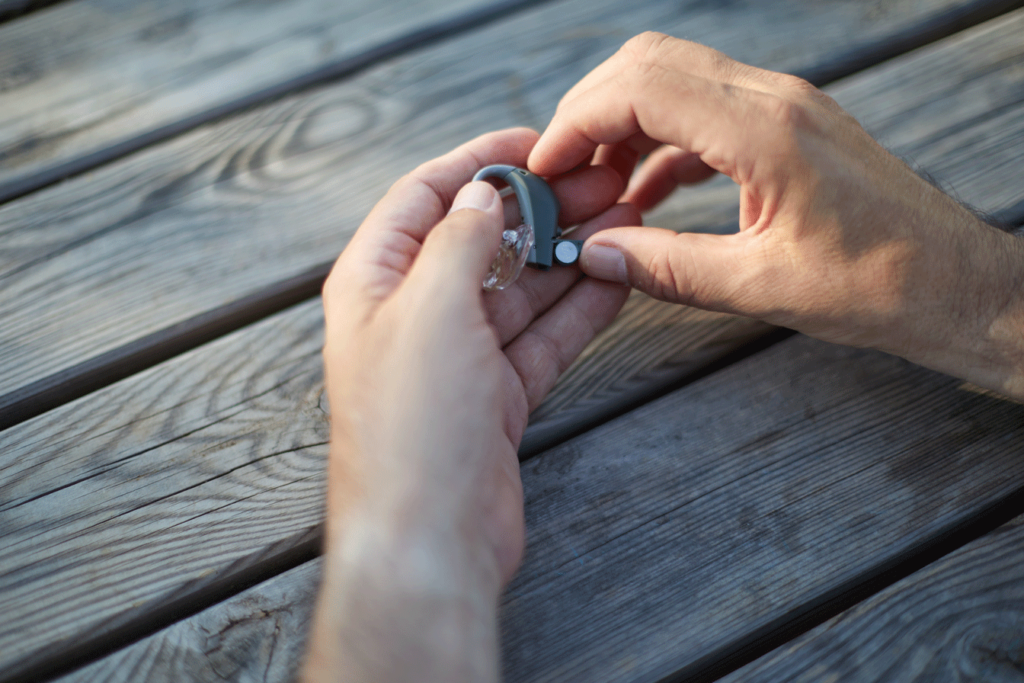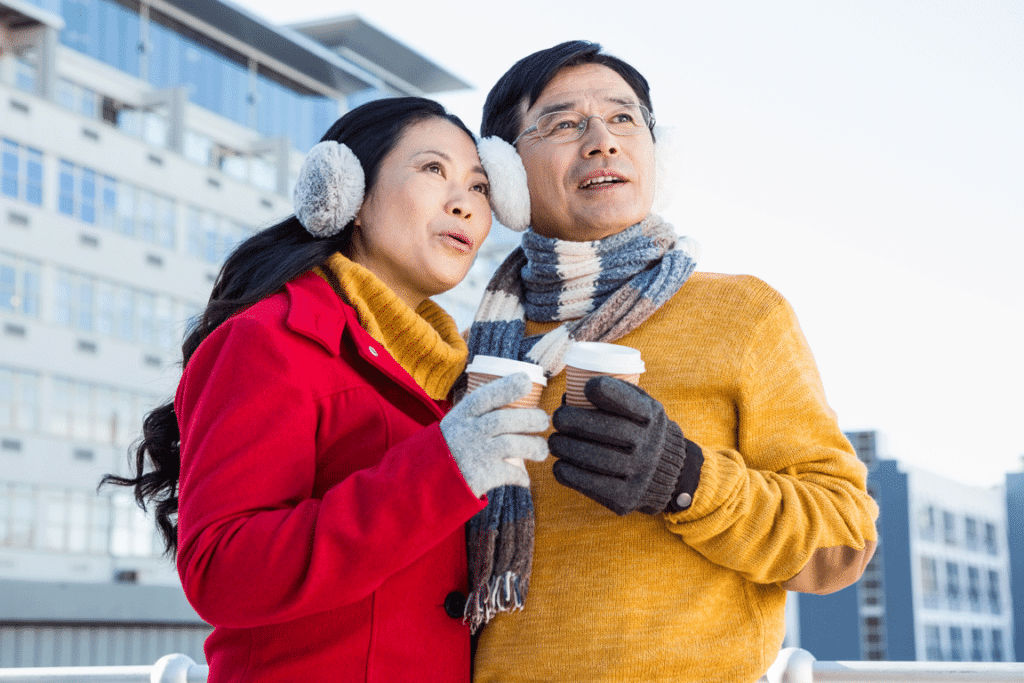
Fall is coming to an end, and winter is quickly approaching. Whether you’re someone who loves winter or tolerates it, there are a few things you should keep in mind when it comes to caring for your hearing aids as the temperature drops.
How the cold affects your ears
First, let’s talk about the impact that cold weather can play on your ears. Your ear is made mainly of cartilage, so there is very little fat to help keep them warm. Furthermore, cold weather can agitate delicate tissue in the ear canals, making them more susceptible to infections, blockages, exacerbating tinnitus symptoms, and earaches. Because of these susceptibilities, it is essential to cover your ears while working, playing, or traveling in cold climates for extended periods.
How the cold affects your hearing aids
Aside from affecting your ears, cold weather can also do a number on your hearing instruments. The temperature itself is not what generally causes the issue; the moisture that accompanies the cold due to temperature change can damage the enclosed components within your equipment.
Just like when you move from a cold outside climate into a warm house, your glasses might fog up. The quick temperature change can form condensation and potentially damage your hearing equipment.

How to tell if your hearing equipment has moisture damage
You must frequently check your hearing aids for moisture during the winter months. The most noticeable areas that tend to experience damage are the microphone and receiver.
Some signs of hearing aid moisture damage include:
- Distortion of sound.
- Sound cutting in and out.
- Static noise.
- Your hearing aids completely stop and then start back up again.
If you know, you’ll be out in the cold for a while, and it’s a good idea to check your hearing aids once you go inside. Ensure to inspect for condensation and open the battery door to allow moisture to escape. Regardless of the weather, it’s always a good idea to leave your hearing aids open overnight to alleviate condensation. If condensation frequently appears, invest in a hearing aid dehumidifier to keep your equipment functioning properly.
How the cold affects your batteries
In addition to moisture, your hearing aids and their circuitry work much harder in colder temps. When this happens, it will cause your batteries to drain more quickly than usual, making it essential to carry additional batteries or a travel charger (for those with rechargeable aids) with you. Make sure to keep them in a warm and safe environment, like inside your coat, close to your body.

Tips for cold weather and hearing aids
Although moisture is difficult to avoid in extreme temps, there are some provisions you can take to try and keep your hearing aids as dry as possible.
Earmuffs: not only help keep your ears warm, but they also provide an added layer of protection against moisture for your hearing equipment. Specialized earmuffs are also available that not only keep your ears warm but can help protect your hearing too. These specialized earmuffs can be worn while working with power tools and lawn equipment to give you additional assurance from loud noises.
Sweatbands: A second great option for keeping your ears warm and your hearing aids dry. These come in many colors, and for those who participate in sports or athletic hobbies, sweatbands are a great option to slide onto your ears and trap moisture and perspiration before they reach your hearing instruments.
Carry an umbrella: Use an umbrella or make sure to have a warm coat with a hood to keep rain and snow off of your ears and your hearing aids.
Maintenance and care for your hearing aids
If you notice any difficulty hearing or have problems with your hearing aids? Visit Salem Audiology Clinic. We’ll handle all your hearing aid maintenance and repair needs, and we offer FREE monthly classes to further educate you on how to protect and get the most out of your hearing aids.
